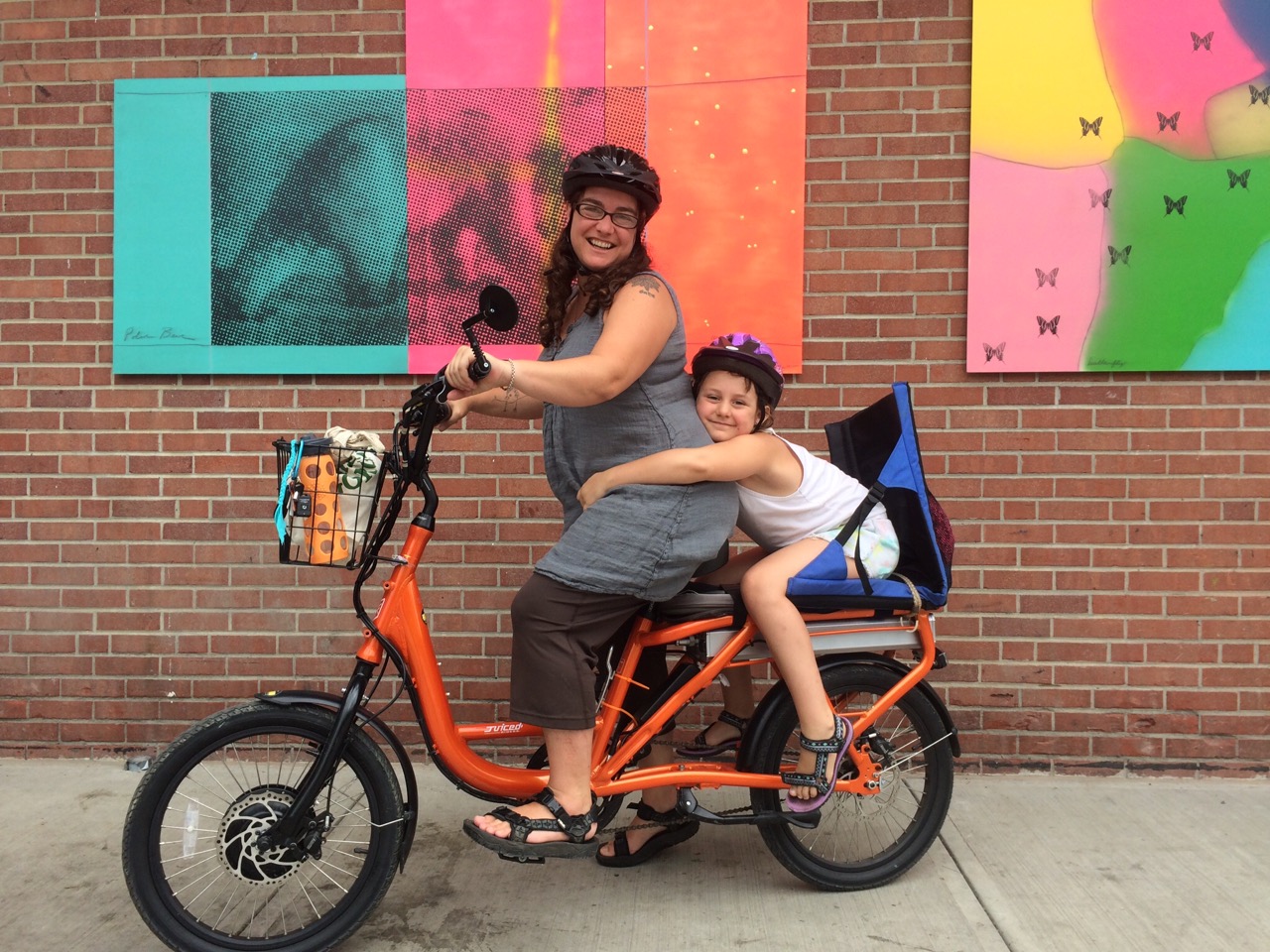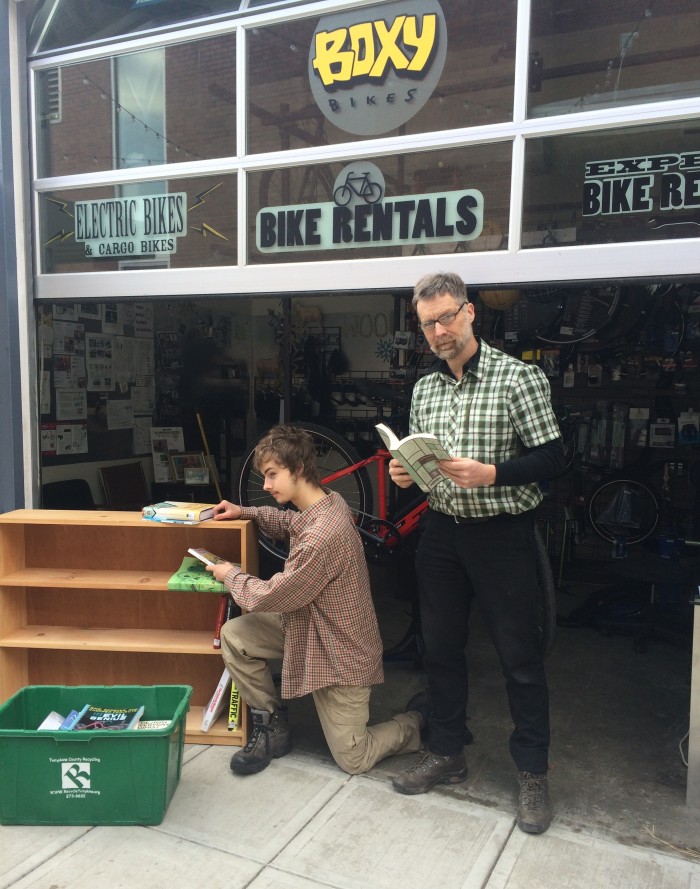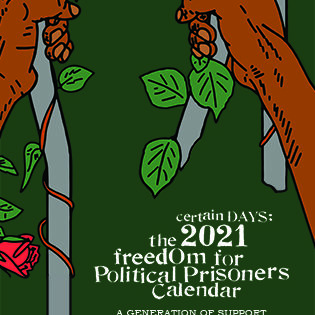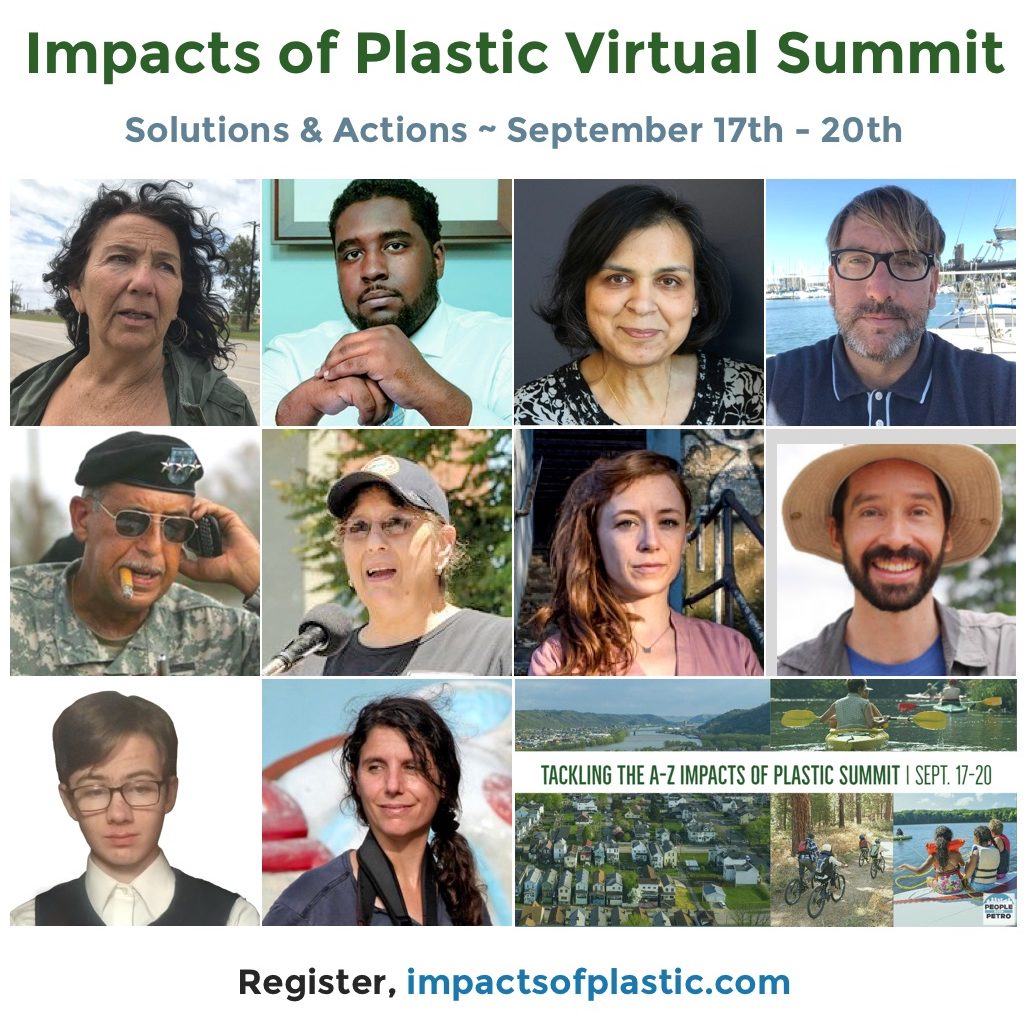Climate Change Is a Consequence of Driving
by Laurence Clarkberg,
Volunteer Curator and owner of Boxy Bikes in Ithaca.
Audio post:
A series of unfortunate events this morning led me to a parable.
It starts with a broken egg
As I was cooking breakfast I opened the refrigerator. An egg that my daughter had placed there the night before fell off a shelf and smashed onto the floor. I thought, I’ll just leave it there so she can see that she needs to put eggs in the egg carton next time. I checked myself to make sure that I wasn’t acting out of anger, but a sincere desire to communicate effectively.
You might think I was acting irrationally to leave a broken egg on the floor for an hour or so so that my daughter would see it. I was following a parenting style called “natural consequences”. A parent practices natural consequences by pointing out to their kids any bad (or good) things that have happened as a result of their actions. What’s cool about natural consequences is that no one has to get angry. No one has to feel guilty. Shit happens. You never need to punish your kids, you just need to point out to them, in an unimpassioned way, the consequences of their actions. (The downside of course is that you have to do stuff like leave a smashed egg on the floor for a couple of hours. My parents were great at this sort of thing.)
Natural Consequences
This kind of parenting helps kids see what their actions have caused. They deal with it not because of any threats by you (or any other authority) but because they learn to perceive causes and effects. They develop a science of morality rather than being forced to subscribe to a creed. “Natural consequences” is the best kind of parenting because it teaches kids how to deal with unique situations without guidance, when parents aren’t around to tell them what to do. Kids trained to see natural consequences don’t just stop breaking things; they clean them up. They fix them.
My wife was upset that I didn’t clean up the egg. She pointed out that our daughter was just trying to be nice by providing us with eggs from her backyard chickens. This leads to me to another point: even kindness can cause badness. No need to get upset at the badness; the typical kind person will see how the consequences of their actions are harming others and they will take steps to make amends. In most cases simply showing the kind person those consequences is enough. In tough cases however more persistent communication is required.
How does this little family squabble relate to a blog post about electric bikes?
I take several lessons from this.
First lesson:
The egg is smashed on the floor. We need to deal with it. Our parents are not going to clean it up for us.
Climate change is real. Extreme weather is real. The acidification of our oceans is real. The melting of polar ice is real. The peril is real. However, there is no need for anger and guilt; let’s just get started fixing the problem. If we survive this maybe we’ll learn something.
Second lesson:
A broken egg is obviously the consequence of the action of dropping it. In many cases though the consequences of our actions are not apparent; they need to be pointed out to us.
Climate change is the result of our automobile-centric lifestyles. Much of CO2 emissions come directly from our tailpipes (I’ve seen estimates between 10% and 40%). The rest of greenhouse gas emissions are enabled by cheap transportation: our ability to inexpensively bring coal to power plants; materialism powered by inexpensive shipping; large suburban homes emboldened by easy commuting; industrial agriculture enabled by fossil-fuel powered farm equipment and shipping; huge amounts of waste enabled by inexpensive trash removal. Driving is the lynchpin that makes our wasteful lifestyle possible. Solar panels, LED lightbulbs and electric cars are not a solution to climate change because they don’t change our underlying auto-centric lifestyle.
Knowing that climate change is a result of driving, and knowing that climate change has the potential to make our planet barren, and that there are transportation alternatives that are less expensive and more fun, it perplexes me that people still drive. It’s clear that people don’t see that climate change is a consequence of driving. This leads to some absurd scenes such as when I biked to the People’s Climate March in September 2014. I saw 400,000 people who drove there, and I saw only two other people who had biked there. Climate marches don’t work because they divert people’s attention from the consequences of their actions.
Third lesson:
Pointing out the bad consequences of someone’s actions may make them defensive, and even angry at you. They will look at everything except what is right in front of them. They may justify their actions by saying they are just trying to be nice. We must point out the bad consequences of their actions anyway.
Environmentalists seem unwilling to point out the connection between climate change and driving. Perhaps they don’t want to upset anyone. Even the EPA cannot muster a statement against driving, and instead manages to recommend buying a car. The EPA website recommends that you “buy a fuel efficient car” and “don’t forget to check your tire pressure regularly!”. They suggest that you “give your car a break” by occasionally walking or biking. The assumption here is that you need a car. You probably think you need a car. You think you need it in order to do nice things for people like drive your kids to school and buy groceries for your family. But what you’re doing is not nice. You don’t need a car to do those things. The consequences of your nice actions are bad things.
Fourth lesson:
When people finally see the consequences of their actions, change can happen very quickly. People will fix climate change.
It wouldn’t be fair to ask people to quit driving unless there was a practical alternative.

There is such an alternative: the electric bike.
An electric bike can do everything a car can do. (In fact they can be so much more capable than a regular bike that we need a new word for what they are.) In an urban setting, cars typically carry one or two passengers 20 miles at an average speed of 20 mph in traffic. Ebikes provide the same utility: two people 20 miles at 20 mph. Ebikes, however, only weigh 80 pounds compared to the average car which weighs 4,000 pounds. Ebikes are very efficient, more efficient even than muscle-powered bikes. Safety issues and foul weather biking issues have been solved.
All the ingredients are in place for a massive revolution. First we have a massive wrong (motorists ignoring the consequences of their actions). And we have a solution to that wrong (electric bikes). All that is needed now is for us to admit the consequences of driving, and let the spark of that awareness spread.
Who will create that spark?
Ebike Ithaca for one, a new organization in town focussed on ebike advocacy. And Boxy Bikes, a bike shop in Ithaca that specializes in electric bikes and cargo bikes. And lastly Durland Alternatives Library, a library not afraid to tell it like it is.
What will create that spark?
Blog Posts. Books. Movies. You can check out books on the topic of climate change from the Durland Alternatives mini-library located at Boxy Bikes.
We recommend “This Changes Everything: Capitalism vs. the Climate” by Naomi Klein. And it just so happens that Ebike Ithaca is sponsoring a showing of the movie “This Changes Everything” at Cinemapolis the evening before Earth Day. Join us!
Event :
[Tweet “Capitalism vs. the Climate movie screening at Cinemopolis, www.ebikeithaca.org”]
This Changes Everything: Capitalism vs. the Climate movie screening at Cinemopolis, Thursday, April 21st 2016, Ithaca NY.

Boxy Bikes’ new bookshelf!







